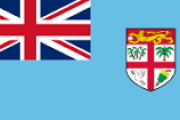Monday, 14 June 2021
Presenter:
Ambassador Satyendra Prasad
Location:
New York
High-Level Dialogue on Desertification, Land Degradation and Drought
Statement on behalf of the Alliance of Small Island States (AOSIS)
Mr. President, Excellencies, Ladies and Gentlemen,
- Let me begin by thanking the President of the General Assembly for convening this High-Level Dialogue on Desertification, Land Degradation and Drought. Last year, hurricanes, extreme heatwaves, severe droughts, and wildfires led to billions in economic losses and claimed the lives of many across the globe. While not all the impacts are as visible, the implications are still significant, especially for the most vulnerable communities.
- Many SIDS have limited arable land to begin with, due to our unique geographical nature, which is exacerbated by the climate change. We are heavily dependent on food imports, and striving to improve the sustainability, resilience, and nutrition-sensitivity of our food systems. However, in tropical regions such as SIDS, crop productivity decreases dramatically even with the rise in temperature as small as 1 degree Celsius.
- According to the WMO, the global average temperature reached 1.2 degrees Celsius last year. We are now dangerously close to a 1.5 degree world, where the risks and frequency of droughts are higher especially for countries such as Cabo Verde, which is already suffering from desertification.
- Water security is a top challenge in SIDS. Lower annual rainfall is leading to water scarcity in some regions, while saltwater intrusion has compromised groundwater sources. As a result, costly and carbon-intensive desalination are required to ensure sustainable and adequate access to safe drinking water, hygiene and sanitation.
- This phenomenon exacerbates our challenges to food, water and energy security, causes loss of income and livelihoods, and in some cases results in displacement of people. All of this compromises the stability, and the prospects of sustainable development in island communities.
Mr. President,
- The cascading impacts of desertification, land degradation and drought transcend beyond human and economic dimensions. It is causing loss of biodiversity, resulting in the collapse of entire species and ecosystems. The emergence of zoonotic diseases such as COVID-19 are also closely linked with the destructive land use practices. Given the scale and magnitude of the current crisis, it is unquestionable that we need to undertake all efforts to prevent future pandemics. This can only be achieved by fostering a more positive relationship between humans and nature. In doing so, it is important to recognize and utilize the close interrelationship between Climate Change, Desertification, Land Degradation, and Drought and Biodiversity Conservation.
- The first line of action is limiting the increase in global temperatures to 1.5 degrees, as enshrined in the Paris Agreement. The mutually reinforcing linkages between climate change, drought, land degradation are reflected in the objectives of both the UNFCCC and UNCCD.
- There is an urgent need to re-design policies, regulations, and governance systems at a national, regional, and global level, that can contribute to more sustainable management and restoration of land. Sharing knowledge and best practices under the UNCCD process, capacity building and technology transfer will support more robust actions.
- For global biodiversity, Climate Change, Desertification, Land Degradation and Drought are threat multipliers. As we set ambitious targets for the Post 2020 Biodiversity Framework, it is important to acknowledge the collective actions needed to achieve these targets. This includes peaking global emissions as soon as possible, reaching net neutrality by 2050, and restoration and conservation of land.
Mr. President,
- SIDS are fully committed to combatting desertification, land degradation and drought in order to achieve food and water security, enhance adaptation to climate change, protect biodiversity and improve resilience to natural disasters. What we are lacking is not the political will, but the resources to implement transformative policies.
- We made the call in the SAMOA Pathway in 2014 for financial resources. We have called for targeted capacity building and technology transfer to SIDS for effective implementation. We have persistently been calling to increase public finance for climate adaptation, given that we are so vulnerable to its impacts, including land degradation and desertification. Despite this, only 2% of all climate finance went to small island developing states between 2016 and 2018.
- The need for increased public finance, especially grant-based and concessional financing is even more prominent following the COVID-19 pandemic. This compounding crisis has destroyed our economies, depleted our limited fiscal resources, and left us drowning in debt.
Finally, Mr. President,
- As we rebuild and recover from the current crisis, we must take a holistic approach that addresses the multiplicity of the global challenges ahead, including desertification, land degradation and drought. The choices we make now will lock in our development pathway in the decade of implementation ahead. We call upon Member States and all stakeholders to support SIDS in taking transformative actions towards a climate resilient and sustainable future, where we co-exist in harmony with nature.
I thank you.


